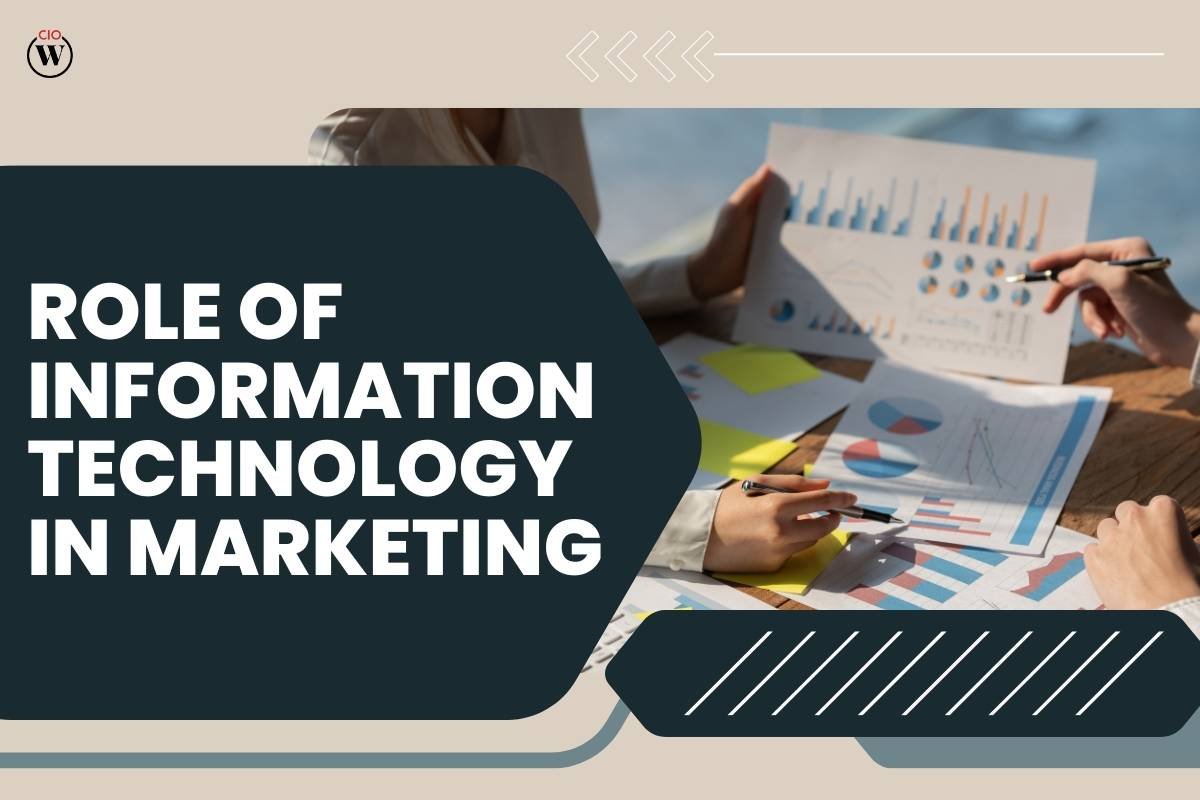In today’s dynamic business landscape, the role of information technology in marketing has become pivotal for the success of any organization. As technology continues to evolve, marketing strategies must adapt to stay relevant and effective. This article explores the profound impact of information technology on marketing, highlighting key trends and innovations that have reshaped the way businesses connect with their target audiences.
Evolution of Marketing with Information Technology
The traditional marketing landscape relied heavily on print, television, and radio advertisements, with limited ways to measure the effectiveness of campaigns. The advent of information technology has revolutionized this scenario, providing marketers with powerful tools and platforms to analyze consumer behavior, personalize messages, and optimize strategies.
- Data Analytics:
One of the most significant contributions of information technology to marketing is the rise of data analytics. Through advanced analytics tools, marketers can now collect, analyze, and interpret vast amounts of data to gain valuable insights into consumer preferences, behavior, and trends. By leveraging data analytics, businesses can make informed decisions, refine their marketing strategies, and tailor their messages to specific target demographics.
The role of information technology in marketing is evident in how data analytics enables businesses to track key performance indicators (KPIs) and measure the success of marketing campaigns. This data-driven approach allows for continuous optimization, ensuring that resources are allocated efficiently and marketing efforts yield maximum returns.
- Social Media Marketing:
The proliferation of social media platforms has fundamentally transformed the way businesses engage with their audience. Information technology has facilitated the rise of social media marketing, providing companies with unprecedented opportunities to connect, communicate, and build relationships with consumers.

The role of information technology in marketing through social media is multifaceted. Platforms like Facebook, Instagram, Twitter, and LinkedIn offer targeted advertising options, allowing businesses to reach specific demographics based on user interests, behavior, and preferences. Additionally, social media analytics provide valuable metrics, enabling marketers to assess the performance of their campaigns in real-time and adjust strategies accordingly.
- Personalization and Customer Relationship Management (CRM):
Information technology has empowered marketers to move beyond generic messaging and adopt a personalized approach to customer engagement. Through sophisticated CRM systems, businesses can collect and manage customer data, enabling them to create highly targeted and personalized marketing campaigns.
The role of information technology in marketing is particularly evident in the ability to segment audiences based on various criteria, such as demographics, purchase history, and online behavior. This level of personalization enhances the customer experience, fostering loyalty and increasing the likelihood of repeat business.
- E-commerce and Mobile Marketing:
The digital era has witnessed a significant shift toward online shopping, and information technology plays a crucial role in facilitating e-commerce transactions. Businesses now have the opportunity to reach a global audience through online marketplaces, websites, and mobile apps.

Mobile marketing, in particular, has gained prominence with the widespread use of smartphones. The role of information technology in marketing through mobile channels involves strategies such as mobile advertising, push notifications, and location-based marketing. These approaches leverage the ubiquity of mobile devices to deliver targeted messages and promotions to consumers, enhancing the overall shopping experience.
- Artificial Intelligence (AI) and Marketing Automation:
Artificial Intelligence is a game-changer in the realm of marketing. Through machine learning algorithms and predictive analytics, AI enables marketers to automate repetitive tasks, analyze large datasets, and gain insights that would be challenging for human operators alone.
The role of information technology in marketing is evident in the increasing adoption of marketing automation tools. These tools streamline processes such as email marketing, lead nurturing, and campaign management, allowing marketers to focus on strategy and creativity. AI-powered chatbots also enhance customer interactions by providing instant responses and personalized recommendations.
Challenges and Considerations
While the role of information technology in marketing is undeniably transformative, it comes with its set of challenges. The ever-evolving nature of technology requires marketers to stay abreast of the latest trends and innovations continually. Additionally, the ethical use of consumer data and privacy concerns necessitate a responsible and transparent approach to information technology in marketing.
- Privacy Concerns:
As businesses collect and utilize vast amounts of consumer data, privacy concerns have become a focal point. Marketers must navigate the delicate balance between personalization and respecting individuals’ privacy rights. Stringent data protection regulations, such as the General Data Protection Regulation (GDPR), highlight the importance of ethical data practices in the role of information technology in marketing.
- Technology Integration:

Implementing and integrating new technologies into existing marketing strategies can be a complex process. The role of information technology in marketing requires a strategic approach to technology adoption, ensuring that systems are seamlessly integrated, and teams are adequately trained to leverage the full potential of these tools.
Conclusion
The role of information technology in marketing is a dynamic and continually evolving aspect of contemporary business. From data analytics and social media marketing to e-commerce and artificial intelligence, technology has revolutionized the way businesses understand, reach, and engage with their target audiences. As we move further into the digital age, marketers must embrace these technological advancements, staying agile and innovative to remain competitive in an ever-changing landscape.
In conclusion, the symbiotic relationship between information technology and marketing is reshaping the industry, providing unprecedented opportunities for businesses to connect with consumers in meaningful ways. By harnessing the power of data, personalization, and automation, businesses can create more effective and targeted marketing campaigns, ultimately driving success in the digital era.









